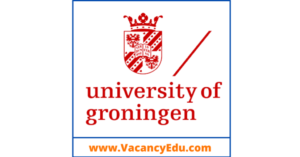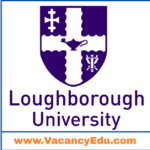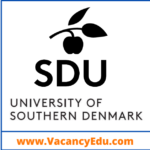University of Groningen, Netherlands invites online Application for number of Fully Funded PhD Degree at various Departments. We are providing a list of Fully Funded PhD Programs available at University of Groningen, Netherlands.
Eligible candidate may Apply as soon as possible.
(01) PhD Degree – Fully Funded
PhD position summary/title: PhDs in the areas of exoplanet astronomy and galaxy formation and evolution (5.0 FTE) (V24.0507)
The Kapteyn Astronomical Institute of the University of Groningen invites applications for at least 5 PhD positions in the areas of exoplanet astronomy and galaxy formation and evolution. Here we give a brief description of each position.
1. Interpretation of exoplanet atmospheric data from the JWST and Ariel telescopes
Supervisor: Dr Quentin Changeat
Description: The James Webb Space Telescope (JWST) has revolutionised the field of exoplanets by allowing us to probe their atmospheres in great detail. In parallel, ESA is preparing the Ariel Space Telescope (launch in 2029), a dedicated exoplanet mission to study 1000s of atmospheres. Current interpretation strategies, however, are often not sufficient due to the much higher information that can be extracted from the data and the number of targets being observed. In this project, the PhD candidate will focus on the study of exoplanet observations with JWST, and help in the preparation of interpretation tools for the Ariel mission. Possible investigation topics include the development of atmospheric models, statistical techniques, and/or instrumentation. Applicants with a background in mathematics, physics (including astro.), computer science, or engineering are encouraged to apply.
Deadline :3 December 2024
(02) PhD Degree – Fully Funded
PhD position summary/title: PhD Electrocatalysis for Solid Oxide Cells towards Energy Conversion and Storage (V24.0509)
In the Engineering and Technology Institute Groningen (ENTEG), we are looking for a talented and motivated PhD student for the development and evaluation of electrocatalysts’ performance and degradation in Solid Oxide Electrolysis Cells (SOECs). SOECs represent the most efficient device for the electrochemical production of green hydrogen, which renders these electrochemical systems promising candidates for renewable energy storage. One of the main challenges is, however, to substantially increase the efficiency and stability of the existing processes through the development of electrocatalytically active and durable materials for electrodes, as well as to deeply understand the pathways of the involved reactions. The PhD project will be part of the HyPRO consortium (https://groenvermogennl.org/(…)n-of-green-hydrogen/) of the National Growthfund GroenvermogenNL. This unique consortium connects 17 leading research organizations in The Netherlands (10 universities, 2 colleges and 5 universities of applied sciences), 7 leading international end-users from the refinery, chemical and energy sectors and 34 high-tech companies covering the entire value chain. These high-tech companies are engaged in activities ranging from equipment development to produce unique coating technologies to developers of key components, such as electrolysis stacks and/or Balance of Plant (BoP) systems.
Deadline : 29 November 2024
View All Fully Funded PhD Positions Click Here
(03) PhD Degree – Fully Funded
PhD position summary/title: PhD position Behavioural Neuroscience (1.0 FTE) (V24.0491)
Our intricate social brain is implicated in a range of brain disorders, where social dysfunction emerges as a common neuropsychiatric feature cutting across diagnostic boundaries in anxiety disorders, major depressive disorders, Alzheimer’s disease and Schizophrenia. Understanding the underlying neurocircuitry mechanisms responsible for social dysfunction and exploring avenues for its restoration will present a transformative and transdiagnostic approach to overcoming therapeutic challenges in these disorders. Based on our earlier clinical and preclinical findings from the PRISM funded EU project, we have shown that the brain’s default mode network (DMN) plays a crucial role in social functioning and is implicated in various neuropsychiatric conditions, including Alzheimer’s disease and schizophrenia. This is highly supported by other studies showing that the DMN emerges as neurobiological system involved in shaping our complex social phenotype.
To further our mechanistic understanding of this transdiagnostic symptom, we propose that the DMN integrates diverse social processes, and that disruptions in brain communication at regional and network levels (e.g., the salience network (SN) and the frontal parietal network (FPN)) due to disease hinder the seamless integration of these social functionalities. Consequently, this leads to an altered balance between self-referential and attentional processes, along with a compromised ability to adapt to social contexts and anticipate future social interactions. To test this hypothesis, we will test for causality of the pathophysiological link between dysregulation of the specific DMN brain network nodes, social information processing, and components of social functioning in mice.
Research environment
Research will be mainly performed in the Neurobiology group at the Groningen Institute for Evolutionary Life Sciences (GELIFES), which comprises several other strong, internationally recognized research groups in the field of evolutionary biology and behavioral neuroscience. In addition, this project is based on a partnership with Boehringer Ingelheim Pharma GmbH & Co. KG, Biberach (Germany), allowing for active collaborations with an excellent industrial partner organization.
Deadline :29 November 2024
(04) PhD Degree – Fully Funded
PhD position summary/title: PhD position on the topic From the Boardroom to the Balance Sheet (V24.0182)
The Graduate School of the Faculty of Economics and Business at University of Groningen has a fully funded PhD position on the topic “From the Boardroom to the Balance Sheet: How Behavioral Dynamics at the Top Shape Corporate Transparency”.
Top-level organizational actors—such as CEOs, CFOs, and board members—play a pivotal role in shaping what organizations communicate to the outside world. Corporate transparency is essential for the trust in organizations and effective functioning of markets and societies. This is also why auditors, such as big four audit firms, are tasked with verifying that a firm’s statements communicated to the outside world are true and fair. Interestingly, while auditors and organizations are subject to regulatory requirements, the reality is that those residing at the top of organizations tend to have a great deal of influence. Some top-level actors simply have influence by nature of their personality and change the social atmosphere by entering the room. Then, notwithstanding strict regulatory requirements, the behavioral dynamics between top-level actors and the auditor will fundamentally shape the quality of information communicated to the outside world.
Deadline : 18 November 2024
(05) PhD Degree – Fully Funded
PhD position summary/title: PhD position in Organic Synthesis (V24.0446)
We are looking for a PhD candidate in the group of Prof. A. J. Minnaard, who leads a natural product synthesis group at the Stratingh Institute for Chemistry (see: minnaardgroup.nl). Within the framework of his Ammodo Science Award, the position focusses on the total synthesis of membrane components of M. tuberculosis.
In an ongoing collaboration with tuberculosis-experts and molecular immunologists we identify and synthesize new components of the bacterial pathogen M. tuberculosis. These compounds have shown to be important for pathogenesis and virulence and are highly interesting from a molecular structure point of view. In parallel, we study how to translate fundamental findings in organic synthesis, such as in photochemistry and electrochemistry, into the synthesis of natural products. This is essential both for the identification of these compounds and also for their production as adjuvants, diagnostics and vaccines. You will design and execute synthesis routes to new molecules from M. tuberculosis, discovered within the “Lipidomics Team”. These compounds will be used in immunology studies by our collaborators. You will be trained in organic synthesis and catalysis, including NMR spectroscopy and chromatography, in photoredox chemistry and in electrosynthesis. Additionally, you will be involved in teaching, by supervising tutorials and bachelor/master theses.
Deadline : 15 November 2024
Polite Follow-Up Email to Professor : When and How You should Write
Click here to know “How to write a Postdoc Job Application or Email”
(06) PhD Degree – Fully Funded
PhD position summary/title: PhD position Multiscale modelling of hydrogen-induced fatigue in steels 1.0 FTE (V24.0407)
For the HyTROS project awarded by the Dutch Research Council (NWO) on hydrogen transport, offshore and storage, a PhD position for the period is available in the context of modelling hydrogen embrittlement of pipeline steels. In this project, the University of Groningen, in collaboration with TU Delft, will unravel the fundamental origin of hydrogen-induced fatigue crack growth by a multi-scale modelling approach. The focus of this position is the atomistic modelling of crack propagation in steels in presence of hydrogen and inhibiting gases (e.g. ppm oxygen), as well as scale bridging from atomistic to microscale crystal plasticity simulations. This includes the development of a quantum-accurate interatomic potential to study crack propagation and hydrogen embrittlement in pipeline steels.
It is well known that hydrogen enhances the fatigue crack growth (HFCG) rate. The physical mechanism at the origin of this phenomenon is however unknown. Detailed understanding of HFCG would allow for optimal usage of (existing) pipelines for hydrogen transport. Furthermore, recent investigations have revealed that mixing small ppm oxygen/inhibiting gases could mitigate HFCG, yet the reason for this is not understood. This project aims at providing a mechanistic model for HFCG and unraveling the mechanism behind gaseous inhibition of HFCG.
Deadline : 15 November 2024
(07) PhD Degree – Fully Funded
PhD position summary/title: PhD Urban greening for both societal and natural stakeholders (V24.0485)
Cities are expanding everywhere, offering challenges (traffic, pollution) but also opportunities (habitat, food, shelter) to wild plants and animals. Recent research has revealed astonishing biological dynamics, leading to rapid change of some species in the urban ecosystem. But while academic and societal interest in urban green spaces – which are considered to provide vital ecological, social, and health benefits – has soared during the past decades, so far the adaptive potential of nature is rarely considered in the design of future-proof, green cities.
In order to ensure the success of urban greening, both human and natural stakeholders need to be considered. In our project, we propose that plant adaptation to urban heat islands is a fruitful framework for bringing together scientists, urban planners, local stakeholders and policy makers to (a) study the process of rapid adaptation of plants in a globally heating world, and (b) apply that knowledge to develop future-proof, green cities in a socially inclusive manner. This project therefore aims to develop new frameworks for the stimulation of local environmental stewardship, where the emphasis lies on improving urban ecosystems rather than introducing green areas in disconnection from the habitat preferences of natural urban dwellers.
This project is a collaboration between researchers at the Faculties of Spatial Sciences, Science and Engineering, and University College Groningen. As the nature of this research is highly interdisciplinary, the specific focus and methodology of this research will be further developed together with the selected PhD candidate. Possible research directions to target this topic include (but are not limited to)
Deadline :11 November 2024
(08) PhD Degree – Fully Funded
PhD position summary/title: PhDs in Perception-action in BCIs, robotic planning, adaptive visualization (2.0 FTE) (V24.0474)
Context-specific Grasping Control and Adaptive Visual Interfaces
In robotic manipulation, human-robot, and human-computer interaction, recent research endeavors are concentrated on advancing context-specific grasping control and adaptive visual interfaces. These interfaces incorporate intricate feedback mechanisms utilizing 2D/3D visualizations on computer screens and augmented reality overlays on physical objects. A critical aspect of this research involves the incorporation of multimodal representations, spanning from neural to behavioral patterns associated with the object interaction task, and integrating visual, auditory, and tactile sensory inputs to construct a comprehensive model of the environment. Developing and analyzing such models further refine our understanding of interaction-specific properties between (i) the human or the robotic hand and (ii) the objects or a visualization, enabling nuanced control strategies.
Both in the context of brain-computer interfaces (BCI) and visualization, leveraging multimodal data and machine learning methods can be employed to enable real-time adaptation and optimization. This multidisciplinary project aims to propel the scientific frontier, fostering the integration of non-invasive BCI, computer vision, and machine learning for more sophisticated and context-aware human-machine collaborations and visualization interfaces.
Deadline :5 November 2024
Click here to know “How to Write an Effective Cover Letter”
(09) PhD Degree – Fully Funded
PhD position summary/title: PhD position Clinical Psychology: neuroimaging posttraumatic memories (1.0 FTE) (V24.0495)
This position is part of a joint project of prof. dr. Judith Daniels and dr. Ineke Wessel. Judith Daniels’s lab focuses on the phenomenon of dissociation in the context of mental disorders as well as the treatment of trauma-related disorders. Ineke Wessel’s (applied) research concentrates on how memory processes influence the origins and maintenance of trauma-related intrusive memories. The overall aim of the current project is to elucidate (neural) processes underlying the recovery from trauma-related mental disorders. Insights from this project will inform theory and interventions aimed at preventing revictimization of persons with a history of trauma exposure.
The PhD candidate will conduct empirical research using neuroimaging (fMRI) and experimental methods in Dutch healthy subjects and patient groups. The specific aims of the PhD project are to (1) investigate the neural correlates of intrusive memories and dissociation as well as predictive biomarkers of non-response to trauma-focused treatment versus recovery from PTSD as well as (2) changes in the quality of the trauma memory over the course of treatment.
The PhD candidate will conduct clinical diagnostic and memory interviews with Dutch patients with trauma-related disorders. Subsequently, the candidate will acquire longitudinal (pre-post treatment) neuroimaging data in these patients. To this end, the PhD candidate is required to work independently and in close collaboration with local treatment providers.
Deadline :4 November 2024
(10) PhD Degree – Fully Funded
PhD position summary/title: PhD Self-assembling polyolefin network materials from polymer waste (1.0 FTE) (V24.0463)
Polyolefins play a crucial role in our daily life. They are lightweight, cheap and food contact approved, which makes them materials of choice for – often single-use – packaging applications and other fast moving consumer goods. Consequently, vast and ever-increasing amounts of polyolefin waste are being produced annually. Driven by the environmental awareness concerning the pollution of polymer waste and the carbon footprint of single use plastics, a growing amount of these polyolefins ends up in recycle streams rather than being landfilled or incinerated. However, polyolefins are inherently difficult to recycle. Mechanical recycling has the lowest energy footprint but requires rather pure waste streams and inevitably leads to inferior material properties after processing. Chemical recycling is complicated by the lack of weak linkages in the polyolefin chain.
Deadline : Open until filled
Connect with Us for Latest Job updates
(11) PhD Degree – Fully Funded
PhD position summary/title: PhD in Systems and Control (V24.0353)
A fully funded PhD position in the broad field of systems and control is available at the University of Groningen, the Netherlands. The specific subject of the project will be determined collaboratively with the selected candidate to ensure a good fit and to attract top talent. Possible topics include, but are not limited to, the following: systems and control theory, feedback optimization, distributed control, consensus protocols, nonlinear control, robust control, with application to energy systems (e.g. smart grids, district heating, hydrogen networks) and traffic networks.
Apart from the research project, the candidate is expected to contribute (~10% of total workload) to the teaching and supervision of Bachelor and Master students.
The position will be supervised by Prof. Michele Cucuzzella, and the candidate will be embedded at the Engineering Technology Institute of the University of Groningen (ENTEG). ENTEG research is highly multidisciplinary in nature and focuses on both fundamental and applied research. The candidate will be a member of the Jan C. Willems Center for Systems and Control which is recognized for its long tradition in mathematical systems theory and its strength in linear/nonlinear systems analysis and control of complex networks. According to the Shanghai Academic Ranking of World Universities (ARWU) 2023, Automation and Control Engineering at the University of Groningen is ranked 3rd in Europe and 19th worldwide.
Deadline : Open until filled
Polite Follow-Up Email to Professor : When and How You should Write
About The University of Groningen, Netherlands –Official Website
The University of Groningen is a public research university in the city of Groningen in the Netherlands. The university was founded in 1614 and is the second-oldest university in the Netherlands. In 2014, the university celebrated its 400th anniversary. Currently, RUG is placed in the top 100 universities worldwide according to three international ranking tables.
The university was ranked 65th in the world, according to Academic Ranking of World Universities (ARWU) in 2019. In April 2013, according to the results of the International Student Barometer, the University of Groningen, for the third time in a row, was voted the best university of the Netherlands.
The University of Groningen has eleven faculties, nine graduate schools, 27 research centres and institutes, and more than 175-degree programmes. The university’s alumni and faculty include Johann Bernoulli, Aletta Jacobs, four Nobel Prize winners, nine Spinoza Prize winners, one Stevin Prize winner, royalty, multiple mayors, the first president of the European Central Bank, and a secretary general of NATO.
Disclaimer: We try to ensure that the information we post on VacancyEdu.com is accurate. However, despite our best efforts, some of the content may contain errors. You can trust us, but please conduct your own checks too.
Related Posts
- PhD Degree (34)-Fully Funded at Loughborough University, Leicestershire, England

- PhD Degree (15)-Fully Funded at University of Southern Denmark, Denmark

- PhD Degree (24)-Fully Funded at Forschungszentrum Julich, Germany

- PhD Degree (08)-Fully Funded at Vrije University Amsterdam, Netherlands

- PhD Degree (27)-Fully Funded at Nottingham Trent University (NTU), England

- PhD Degree (24)-Fully Funded at University of Oslo, Norway

- PhD Degree (04)-Fully Funded at Masaryk University, Czech Republic

- PhD Degree (29)-Fully Funded at University of Oslo, Norway

- PhD Degree (13)-Fully Funded at University of Stavanger, Norway










